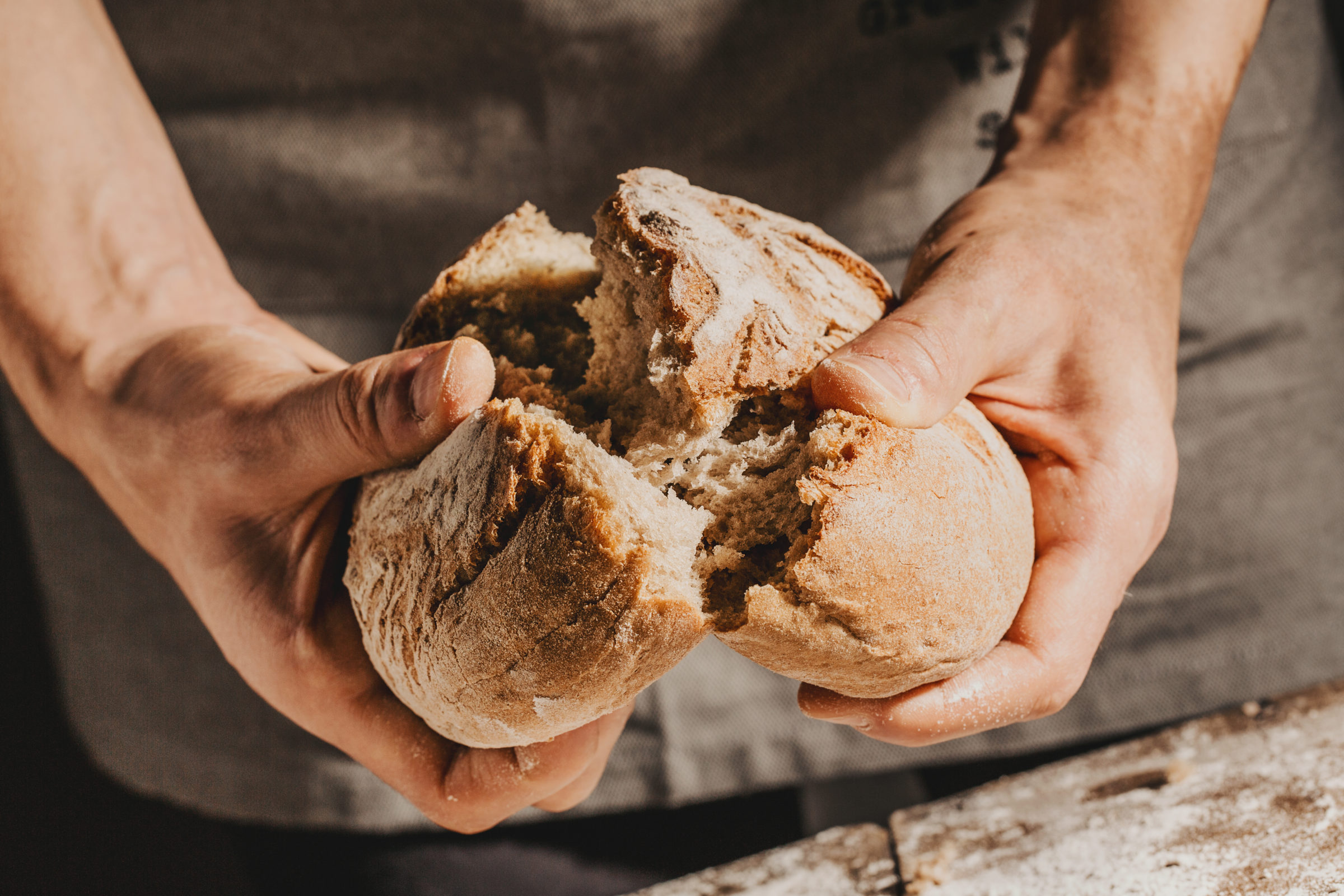Wealth & Poverty Review Solutions to Homelessness: How Breadcoin Feeds the Hungry
This morning I drove into Washington, D.C. The suffocating summer humidity has dissipated and the air is beginning to cool now that September has arrived. I parked my car on Massachusetts Avenue, paid the parking fee, and walked across the street to a humble food truck stationed outside Central Union Mission. I was there to meet the founders of Breadcoin, an innovative solution for the hungry in DC and Baltimore.
I found Scott Borger and Cary Umhau – Breadcoin’s founders – and two men who introduced themselves to me with smiles as Fernando and Mohammed. Mohammed is homeless, but he spends time helping others by distributing Breadcoins and building relationships with the homeless and hungry. He wants to share the hope that was given to him when he came into contact with Breadcoin workers two years ago.

Here’s how it works: Each Breadcoin token is worth $2.20, funded by donors, and distributed by nonprofits and other institutions already in contact with people who might be struggling to get food. Distributors include schools and police departments – people who are already in contact and in relationship with the vulnerable. A Breadcoin can then be used at local participating vendors to purchase food.
Cary shared with me the story of a man who saved up his tokens so that he could treat his daughters to a sit-down restaurant – an experience that restored to him a dignity that we often take for granted.
That is the whole idea behind Breadcoin: to restore dignity to the hungry and homeless. More than that, the idea is to connect people to a wider community. Donors fund usable tokens for community members who provide those tokens and other resources to the hungry and homeless who utilize that currency at local businesses who cash in those Breadcoins for legal tender.
Everything is intended to be done in the context of relationship. This reminds me of Alan Graham’s work in Austin, Texas. Describing his Community First! Village, he said, “We believe that the single greatest cause of homelessness, particularly in our country, is a profound, catastrophic loss of family.”
Thus, the solution to homelessness and other forms of human suffering is connection, not just to housing, but to people. And what greater way is there to connect people than through food?

Breadcoin also hosts “flash tables” – neighborhood events that gather people around tables to be fed and to enjoy one another’s company. Scott and Cary explained to me the importance of the volunteers eating together with those they are serving, again with the aim of restoring dignity to those in need.
But it doesn’t end at a food token. Breadcoin partners with other outreaches like Mission Muffin and Central Union Mission, services that provide programs and other resources to pull people out of homelessness and other cycles of suffering and into a fulfilled and meaningful life.
Washington, DC has reminded me in many ways of Seattle. Veer away from the National Mall any distance, and you will begin to find tents, piles of trash, homeless encampments, and people not in their right mind.
City politics regularly fail homeless communities through talk of Housing First, bureaucratic corruption, and “safe injection sites,” but a half mile from Washington Union Station, real solutions spring from the tender hearts of real people.

